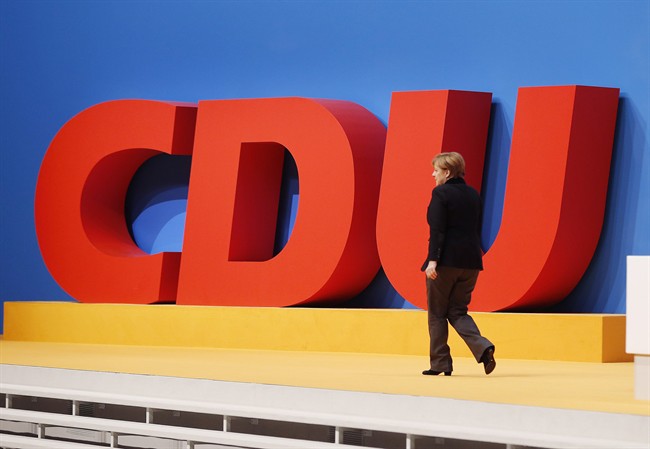Official results in the latest regional elections in Germany show the political landscape in the country is changing, even in its largest city — Berlin

The Social Democrats (SPD) and Chancellor Angela Merkel’s Christian Democratic Party (CDU) came out on top, but parties lost enough support to no longer govern with a coalition.
The SPD receiving just 21.6 percent of the vote, a drop of 6.7 percent over last time, and the CDU receiving 17.6 percent, down 5.7 percent over last election.
Although the new regional government in Berlin will have different parties making up the coalition, the SPD’s Michael Müller will retain will retain his place as Berlin’s mayor.
READ MORE: Merkel defends migrant policy after right-wing AfD wins more votes in home state
Results coming out Monday showed many voters in Berlin drifted away from the centre and further to the left or right with their support.
Germany’s right wing anti-immigration party, the Alternative for Germany (also referred to by the German acronymn AfD), was a beneficiary of this shifting support. The party managed to pick up 14.2 percent of the vote, making it into Berlin’s state parliament. This is the 10th state parliament in Germany where the AfD has managed to win enough votes to enter, signalling that the party is likely not going anywhere.
The success of the AfD in Berlin, which is traditionally seen as a very liberal and left-leaning city, is seen as a strong indicator of the concern many voters have with the influx of refugees.
AfD party chariman Joerg Meuthen said he was very pleased with the the AfD’s strong showing.
“Politically, this city is characterized by a profile of left and green parties, and so reaching more than 12 percent from zero is remarkable,” he said.
READ MORE: Germans balancing attitudes on asylum seekers, terrorism after string of attacks
Despite polling ahead of the AfD, Merkel’s CDU was not as celebratory.
Peter Tauber, the party’s general secretary, expressed his concern over the loss of support in the city.
“There is reason to fear that those who caused part of the problems this city continues to suffer from are now returning to positions of responsibility,” he said. “That is not a good outlook for Berlin, which is why first and foremost it is the city that is the loser of this evening.”
This is now the fifth regional poll in a row where Merkel’s CDU party has lost support. With federal elections in 2017, there is concern that this latest result should serve as an even bigger warning to both Merkel and the party.
Many see the continued success of the AfD and the CDU’s consistent loss of support in regional elections around Germany as an indictment of Merkel’s “Wir Schafen Das” (We can cope) policy towards refugees.
READ MORE: Protests in Berlin show divides of Germany’s open door migrant policy
Some members of the CDU are now advocating a reversal in Merkel’s migrant policy. But she has steadfastly refused to alter her policy, despite rising concerns in recent month over the refugee crisis and the more than one million refugees the country has taken in.
Analysts in German media now say this latest result will likely force Merkel to focus more of her attention on German affairs, rather than EU affairs, ahead of next year’s elections, but may not signal any change in policy towards refugees arriving in the country.


Comments